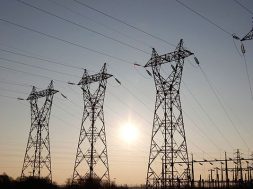
In Short – The peak power demand is expected to increase by 7% to reach 260 gigawatts during the summer season. This surge underscores the growing energy needs and highlights the importance of effective energy management strategies to ensure reliable supply during periods of high demand.
In Details – According to estimates by the power ministry, the peak demand in the country could reach 260 GW during this summer, surpassing the previous record of 243 GW in September last year. India will continue to heavily rely on electricity generated using coal during the upcoming summer season, with peak demand expected to exceed 260 gigawatt (GW) due to anticipated intense heat conditions in parts of the country, according to a power ministry official on Tuesday. While renewable capacities are still being added, authorities are stockpiling coal at power plants to meet the peak demand, the official stated, adding that solar power would also significantly contribute to meeting the demand.
The ministry, which has been regularly reviewing the situation, has instructed all power generating companies, particularly thermal plants, to postpone their maintenance plans, while gas-based power plants have been instructed to be ready for electricity generation. The Indian Meteorological Department forecasted on Tuesday that India is poised to experience extreme heat during the April to June (summer) period, with the central and western peninsular parts expected to bear the brunt of it. Moreover, above-normal heatwave days are anticipated across most parts of the plains during summer. IMD projections suggest that ten to twenty days of heatwaves are expected in various parts of the country, compared to the normal four to eight days.
According to estimates by the power ministry, the peak demand in the country could reach 260 GW during this summer, surpassing the previous record of 243 GW in September last year. The official, speaking to PTI on the condition of anonymity, mentioned that hydropower generation would be lower this year compared to last year due to the low water levels in reservoirs across the country. Consequently, coal-based thermal power plants and solar energy will meet a significant portion of the high electricity demand in the country during this summer. The official informed that Union Power Minister R K Singh and other top officials in the ministry have been conducting review meetings on the anticipated extreme heat wave situation in the country for the past 15 days, involving other ministries like railways and coal, state officials and power companies.
These review meetings are held every year before summer by the ministry, but this time, the demand is expected to reach an all-time high level of 260 GW in the country. The official also stated that the ministry has urged all power-generating companies, especially thermal plants, to postpone their maintenance plans as they are time-consuming. It takes over three days to shut down a coal-based thermal power plant for maintenance and the same amount of time to restart it. Furthermore, the official mentioned that the power ministry has also instructed all gas-based power plants to be prepared for generation to meet the sudden surge in electricity demand in the country. According to the Central Electricity Authority (CEA), India has approximately 25 GW of gas-based power generation capacity. Coal and lignite-based thermal power capacity stands at around 216 GW in the country and serves as the base load.
As per the February report of the CEA, solar capacity stands at around 76 GW, while wind energy stands at 45 GW. Similarly, the large hydro (more than 25 MW plants) power capacity is approximately 47 GW in the country. The total installed power generation capacity in the country is around 434 GW. The official also mentioned that the power ministry has already taken measures to increase coal supplies at thermal power plants, including blending of six per cent imported coal and must-run directives for imported coal-based plants. According to the latest report of the CEA as of 31 March 2024, 185 power plants in the country monitored by it had 73 per cent of the normative coal stock. These power plants had 50.59 million tonnes of coal against the normative stock of 69.25 million tonne.











